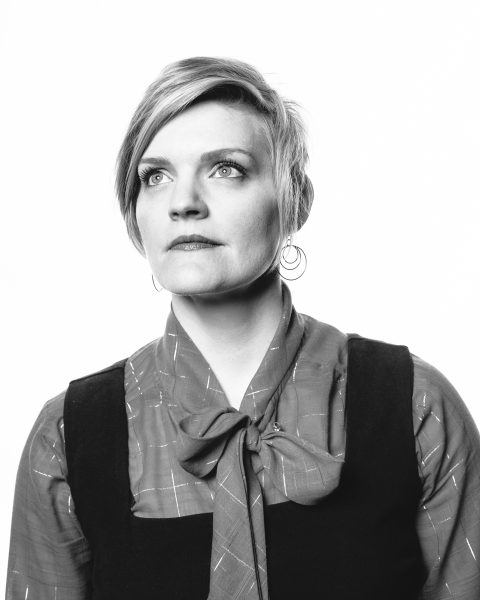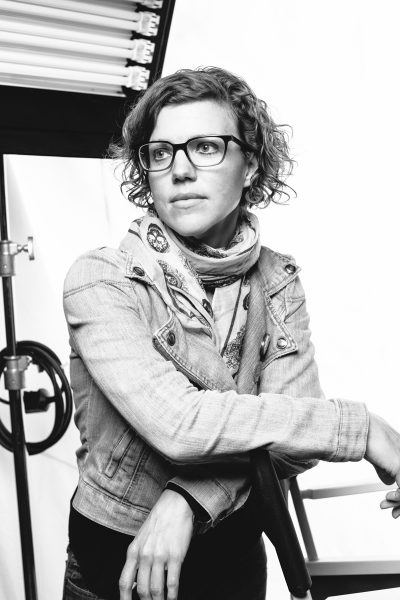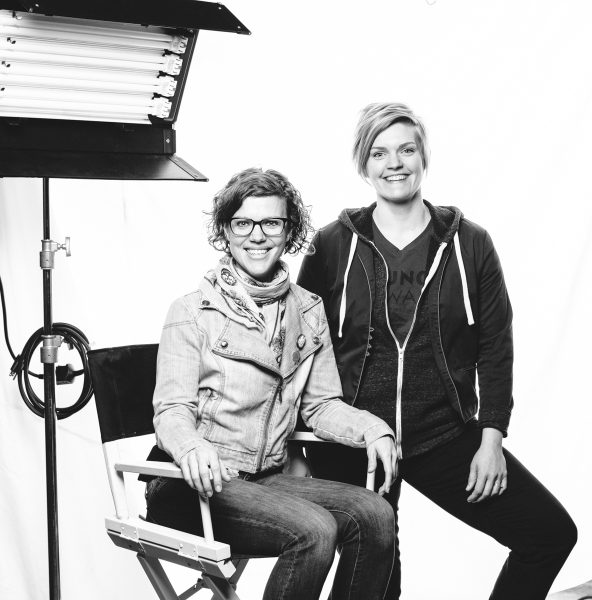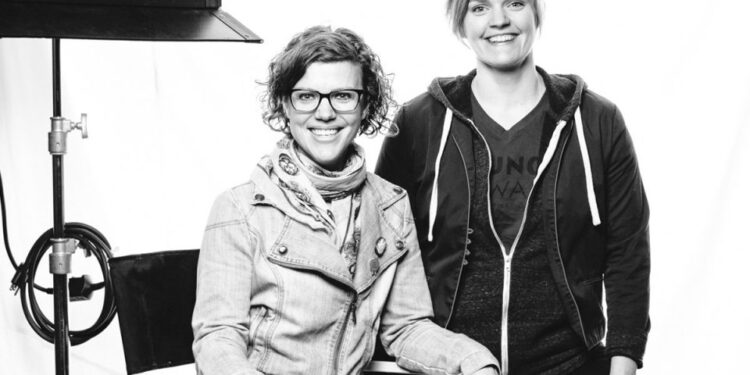“What is the world limiting me to, as a woman? And what if I wasn’t?” Katie Becker Colón asks as we discuss this summer’s production of All’s Well That Ends Well for Shakespeare on the Green. Becker Colón, a long-time actor for Nebraska Shakespeare and their current director of education, will play Parolles as a member of Juno’s Swans, a program for all-female Shakespeare productions.
Becker Colón has had many traditionally “male” roles throughout her career. “One big highlight for me was playing a cardinal in King John, appearing on the stage in all of that jewelry and gold, and wielding power—and not power because of the character’s gender, but power because it was literal and given by a political authority like the Pope.”
r r
r
Though it may seem a novelty at first blush, the gender imbalance in Shakespeare is a major concern for actors seeking fulfilling roles, especially for women.
For Becker Colón, the opportunities the program has presented have been challenging but rewarding. “Physical license is something I have to prepare for,” she says. “A few years ago, I played Brutus in Julius Caesar, and I had to physically pull Caesar across the stage over and over. It was wildly uncomfortable for me, because I had never before grabbed a grown man and moved him like that. It felt like stepping outside of my bounds, and it raised questions for me about why I was ‘wired’ that way.”
Sarah Lynn Brown, interim artistic director for Nebraska Shakespeare, formed Juno’s Swans after 2016’s all-male Taming of the Shrew, and they have done enormously successful all-female readings of Richard III and Julius Caesar leading up to this season. “Shakespeare is the best,” Brown says, “and it’s frustrating that we’re left to deal with the realities of his day.”
Because Shakespearean plays were originally performed exclusively by men, this disenfranchisement is borne out in the available roles for men and women today. By about seven to one, there are more male Shakespeare characters than female, and the largest female role, Rosalind in As You Like It, has only 721 lines compared with over 1,500 for Hamlet.
r r
r
The challenge for Matthew Olsen, who played Bianca in 2016’s all-male Taming of the Shrew, went in a different direction than his female counterparts. “[Bianca] didn’t have a lot of lines. I’d ask Sarah things like, ‘Why is this character even here? To look pretty? What’s the point?’ and her response was ‘Yeah, no kidding.’ As a man, I have all of these roles custom-made for me, and I came to the realization that female actors go through this constantly.”
Despite these imbalances inherent to Shakespeare, the Swans agree these gender-flipping experiments are opportunities for the actors foremost: “It’s not like we’re trying to ‘fix’ the plays,” Brown says. “Instead, these performances allow new things to emerge creatively. Shakespeare wrote amazing people, regardless of their gender, and because of that the gender of the actor doesn’t matter as much. No matter who plays the parts, Caesar still dies.”
However, there is an even deeper challenge to these roles than these anecdotes might suggest, and a deeper significance to offering all-female productions. “Female actors are often hesitant to take ownership of these roles, to do the actions they do onstage and not feel compelled to apologize for them,” Brown says. To alleviate this, she created an actor’s circle to precede performances, giving the women time to have space, to bond with the other players, and invite vulnerability, an experience Brown and Becker Colón both speak of fondly. “You cannot be an actor without opening yourself to risk,” Brown states, and she hopes that these productions allow actors to find new frontiers for their craft.
This summer’s All’s Well production also seeks to break new ground in other ways, by inviting audience dialogue after the performances—a first for Nebraska Shakespeare—as well as bringing in numerous all-female musicians and acts to entertain ahead of performances. “When we make space for women like this,” Becker Colón says, “the world changes for the better.” Together, the Swans hope that these productions help normalize putting women in these roles and spaces, and strengthen connections for women within the Omaha community.
Assistant director Ezra Colón says he’s looking forward to taking a step back. He had previously performed in 2016’s all-male Taming alongside Olsen, but he is behind the scenes this year.
“I’m most excited to be in the room and to learn,” Colón says. “My goal is to help Sarah and the company create the best possible production of All’s Well as we can—this one just happens to be all-female. It is a real pleasure to see Sarah and the Swans work and create.”
Olsen also has nothing but praise for the Swans. “I was blown away by the complexity they brought to the roles; the Caesar reading was some of the best work I’d ever seen…Shakespeare is universal, and somewhere we’ve lost sight of that a little. Juno’s Swans have brought some of that back.”
r
Visit nebraskashakespeare.com for more information.
rThis article was printed in the May edition of Omaha Magazine. To receive the magazine, click here to subscribe.














